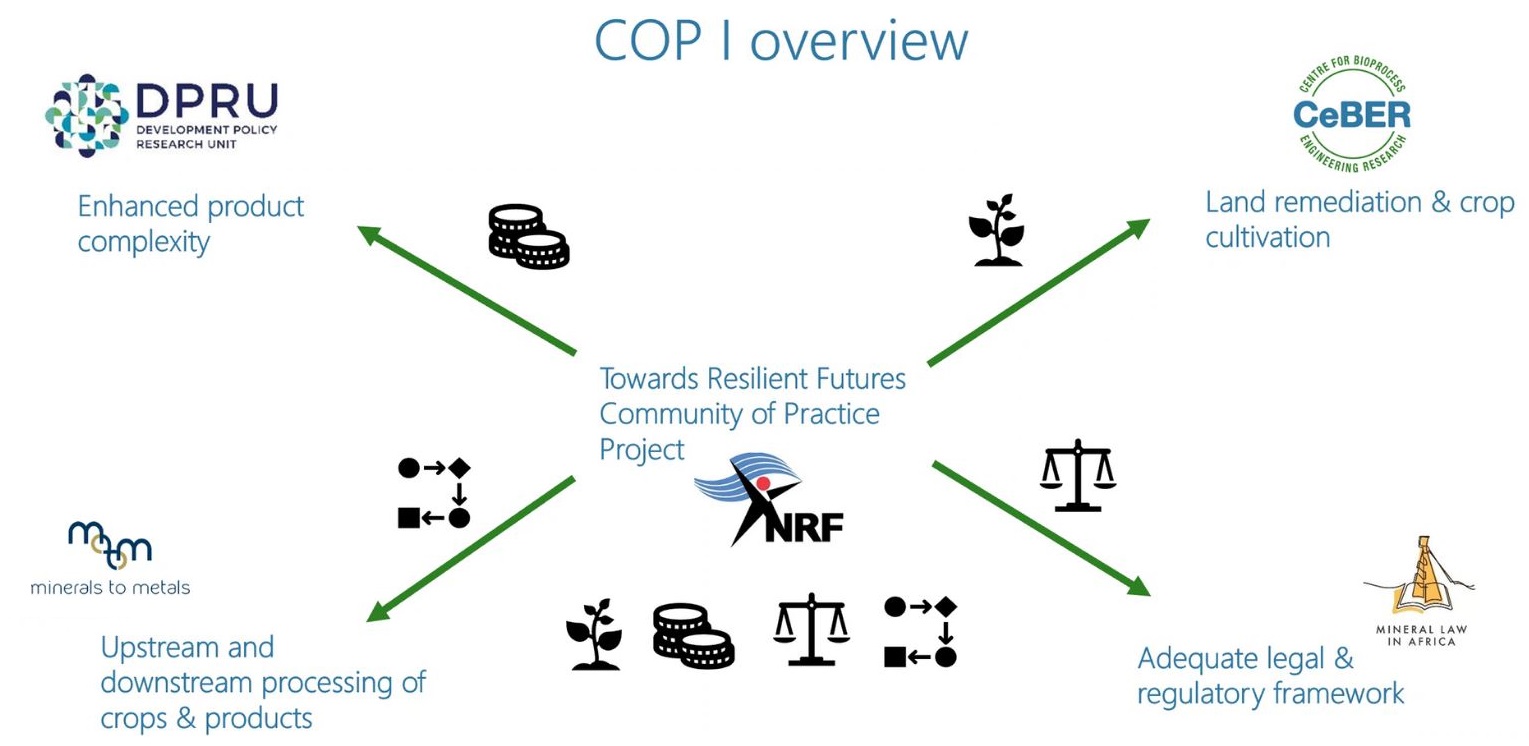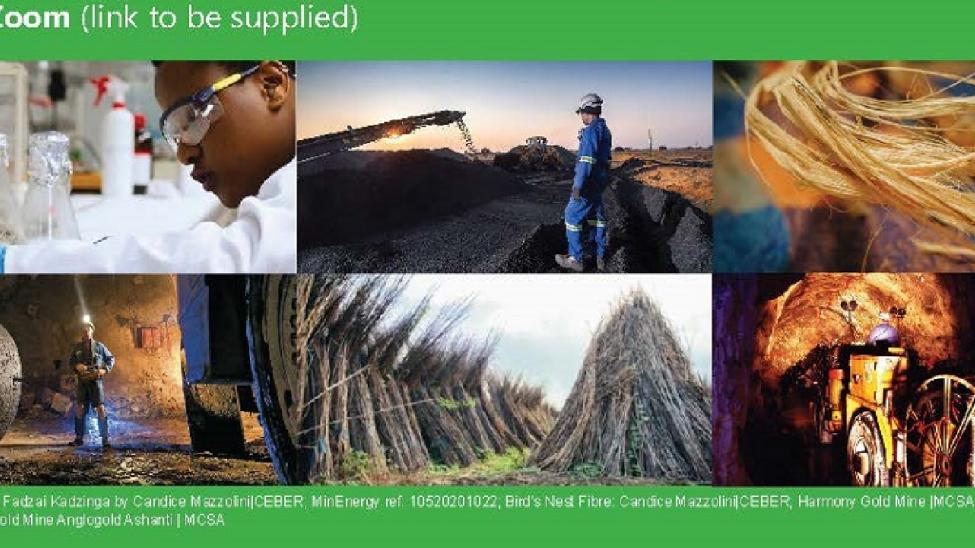
CURRENT / PHASE 2: Use of Fibre-rich Biomass in the Remediation of Degraded Mining Land
In mid 2020, the National Research Foundation (NRF) awarded the Resilient Futures interdisciplinary research alliance funding to embark on a second phase. This University of Cape Town (UCT) Community of Practice (CoP) developed and refined a novel approach through a process of discovery in Phase 1: the Multi-disciplinary Industrial Policy Approach (MMIP). It represents the CoP’s innovative conceptual approach to solving environmental, economic and social challenges in a holistic multi-disciplinary manner, so as to inform economic, industrial and environmental policy in South Africa.
In Phase 2, using the conceptual and analytical tools of economic complexity and the product space network, the CoP will identify a set of frontier products or diversification opportunities. These are products that offer growth opportunities that are economically feasible given a country’s current set of productive capabilities. The multi-disciplinary team will then meet and, using its diverse set of skills, identify the top three frontier products that will set South Africa on an inclusive and sustainable growth path. The following four criteria will be used to inform their selection: first, the product itself, or elements across the broader value chain related to the product, needs to be produced in a labour-intensive manner. Second, the production of the product needs to be environmentally sustainable and water wise. Third, the product needs to be mining related. Fourth, the product needs to offer export potential.
Once the top three frontier products have been selected, the CoP will shift into the formal stages of the MMIP Approach, where it will collaboratively apply its suite of differential skills – environmental, material and engineering, economic and legal – to devise unique value-added solutions for the relevant products. In particular, the approach aims to provide insight into the development of multi-product value chains that emanate from the identified products. Thereby, the CoP would generate a set of policy recommendations consistent with the broader policy aims outlined in the National Development Plan (NDP), and tailored toward guiding South Africa toward attaining the Sustainable Development Goals (SDGs).
BACKGROUND / PHASE 1: Developing a Fibre Micro-industry to Generate Economic Growth from Degraded Land
Fibre plants such as hemp, kenaf or bamboo can be used to transform degraded land into a restorative agricultural sector and a dynamic manufacturing sector, which provides employment opportunities, inclusive socio-economic growth and poverty reduction in mining communities beyond the life-of-mine. The aim of the first phase of this multi-disciplinary project was to determine through a Community of Practice whether fibre-rich biomass can be used to remediate degraded land in a way that is economically feasible, leading to enhanced economic complexity, the establishment of a bamboo micro-industry, and crucially, higher value-add in output and job creation.
This Community of Practice is a true trans-disciplinary research undertaking. We aimed to approach the research questions through cross-disciplinary engagement around the product:
- Economic perspective: How can economic complexity be built on the basis of an understanding of local socio-economic linkages?
- Environmental perspective: What environmental factors influence the ability of rapidly growing, fibre-rich plants to remediate damaged and polluted land?
- Material and Engineering perspective: What are alternatives and implications for downstream processing options?
- Legal perspective: What regulatory barriers exist, and how can they be addressed?




